From health care to climate change, the crowded field of Democratic presidential contenders has a number of complex subjects to tackle in stump speeches, interviews and debates.
But few are proving as thorny as criminal justice reform, often for very personal reasons.
For candidates like former Vice President Joe Biden and Vermont Sen. Bernie Sanders, it’s their past record of voting for tough-on-crime legislation. For others, like South Bend, Ind., Mayor Pete Buttigieg and New York City Mayor Bill de Blasio, it’s their current oversight of troubled police departments. And for former prosecutors, like California Sen. Kamala Harris and Minnesota Sen. Amy Klobuchar, it’s their own records of putting people behind bars.
The peril of the subject was demonstrated vividly just before the recent primary debates, when a white police officer in the South Bend shot and killed a black man, 54-year-old Eric Logan. Asked at the debates why was he wasn’t able to hire more black officers, Buttigieg said: “Because I couldn’t get it done.”
Here’s a look at what the 2020 Democratic candidates propose to do on criminal justice reform as well as their own records.
Former Vice President Joe Biden
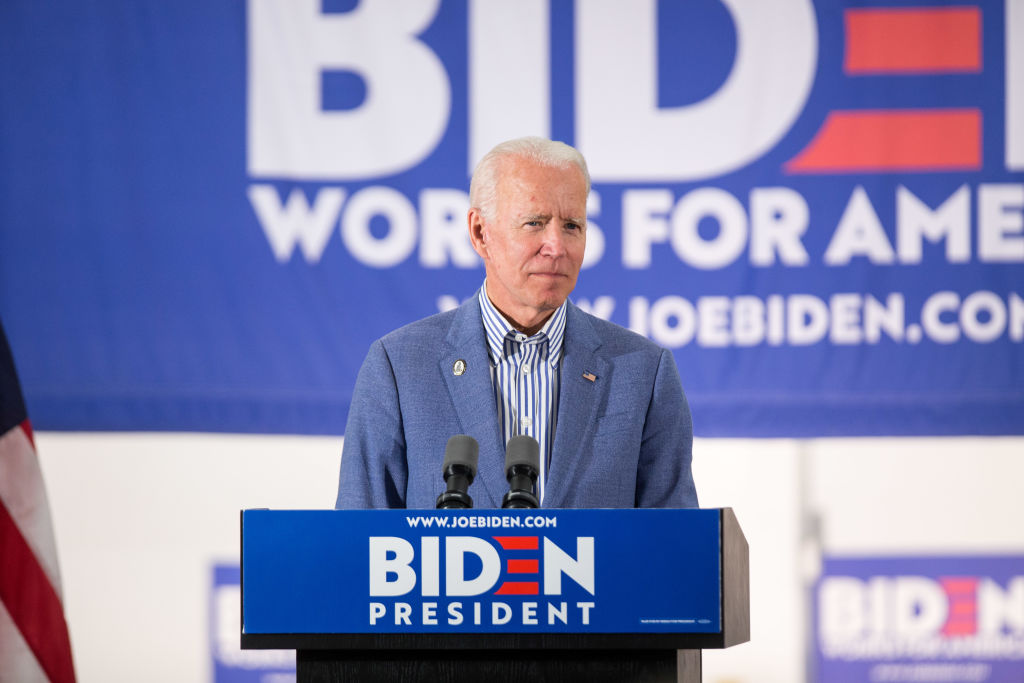
Few candidates face as serious an obstacle as Biden, who literally helped write the law. As a senator from Delaware in the 1990s, he long took-credit for his role in crafting the 1994 crime bill signed by President Bill Clinton.
At the time, it was the largest crime-control bill in U.S. history and provided the U.S. with thousands of new police officers, billions of dollars in funding for prisons and millions of dollars in funding prevention programs.
But it also included a mandatory life sentence policy for repeat offenders, which critics blame in part for the mass incarceration of black men in the ’90s.
On criminal justice issues, Biden is now more in line with the goals of reformers. As vice president, he spoke about the killings of Alton Sterling and Philando Castile and said that the Obama Administration can “deal with the remaining issues that affect the perception and reality of how police act in communities and how the communities act to the police.”
Biden also expressed regret in January over his stance of being tough on crime in the 1990s. “The bottom line is we have a lot to root out, but most of all the systemic racism that most of us whites don’t like to acknowledge even exists,” Biden said at a breakfast hosted by Rev. Al Sharpton and the National Action Network. “We don’t even consciously acknowledge it. But it’s been built into every aspect of our system.”
On July 23, just a week before the second Democratic debates, Biden unveiled a brand new criminal justice reform plan.
“The Biden Plan for Strengthening America’s Commitment to Justice” lays out the goals such as reducing the numberof people incarcerated, focusing more on redemption and rehabilitation and rooting out the racial, gender and income-based disparities in the criminal justice system.
The plan lays out how Biden would execute each one of his goals. He hopes to create a $20-billion grant program that will help states shift from incarceration to prevention. The plan also includes eliminating the death penalty, mandatory minimums and ending incarcerations that are solely for drug use.
California Sen. Kamala Harris
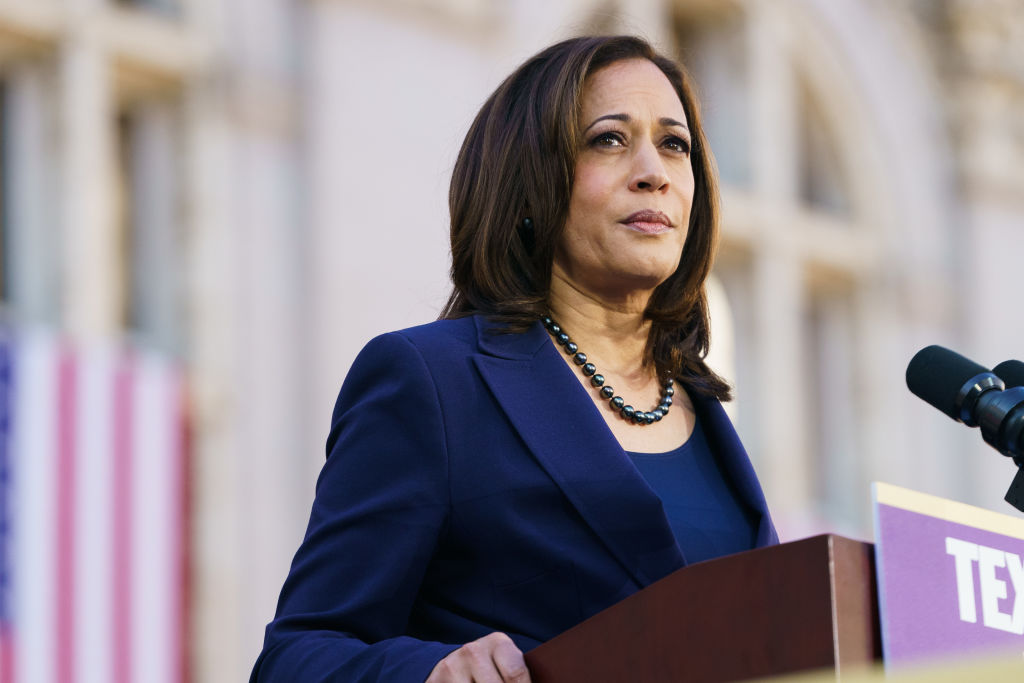
For Harris, her background as a prosecutor, district attorney and attorney general of California is both a strength and a weakness.
As shown by her cross examinations of everyone from Senate witnesses to Biden on the debate stage, her public persona leans on the classic image of a tough but fair prosecutor. Her slogan, “For the People,” is even a phrase from courtrooms.
But like Biden, Harris also has faced questions about her tough-on-crime record. She has expressed regret over her role as attorney general in California in the passing of a law that punished the parents of children who were consistently missing school.
Harris has also had a tricky past when it comes to the death penalty. When she announced her candidacy, Harris went on MSNBC and said that she’s always been against the death penalty.
“We are talking about a system that creates a final punishment without any requirement that there be DNA to prove it,” Harris said. “It is a system where it has been fundamentally proven to be applied to African American and Latino men and poor men disproportionately for the same kind of crime.”
While working as a district attorney in San Francisco, Harris did not seek the death penalty in the shooting death of Isaac Espinoza, a young cop who was killed by David Hill. Harris faced some criticism from law enforcement groups for her decision.
In 2010, when she was running for attorney general in California, Harris had a hard time getting support from law enforcement groups. She said that while she personally did not agree with the death penalty, she would support it as attorney general. She would go on to narrowly win the election.
Harris initiated some significant police reforms during her time as attorney general of California. The state’s Department of Justice became the first agency to have a statewide body camera program under her watch. She also started the Open Justice Program, which tracks much of the police data in the state, including people who die in police custody.
As a senator, Harris sponsored the End Racial and Religious Profiling Act and supported a bill that would provide funding for police body cameras.
While Harris previously believed independent inquiries into police shootings should be left to the local district attorneys and prosecutors, she has said that she is now in support of independent inquiries.
Vermont Sen. Bernie Sanders
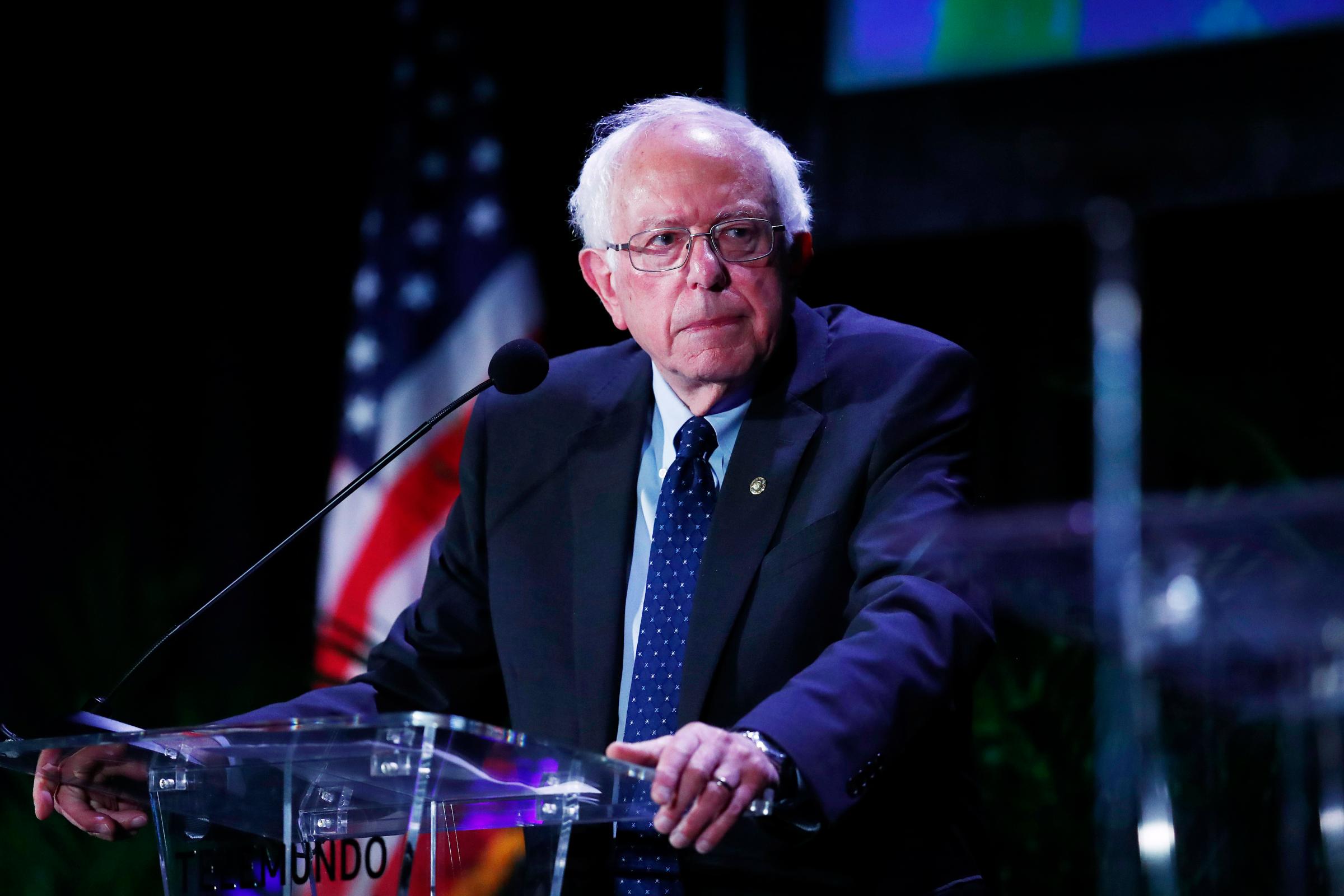
Like Biden, Sen. Bernie Sanders was a supporter of the ’94 crime bill. However, he has since moved away from that position and has spoken out against the use of private prisons, the war on drugs, police misconduct and the death penalty.
In 2015, in the midst of the a several incidents of police shootings of unarmed black men, Sanders told MSNBC that the policing of minority communities is a “huge issue.”
“We are beginning to pay attention to what happened in South Carolina, what happened in Baltimore, what happened in New York,” Sanders said. “Clearly we do need police reform, we need better training. When police officers break the law they have got to be held accountable. It is no longer acceptable to turn away from that reality.”
Since starting his campaign for 2020, Sanders laid out his “Racial Justice” plan that, among other things, highlights the racial disparities that exists in arrest patterns of the African American community.
Sanders also hopes to end the “war on drugs”, eliminate private prisons and detention centers, abolish the death penalty and “bring about a major police department reform” in his Racial Justice plan.
South Bend, Ind., Mayor Pete Buttigieg
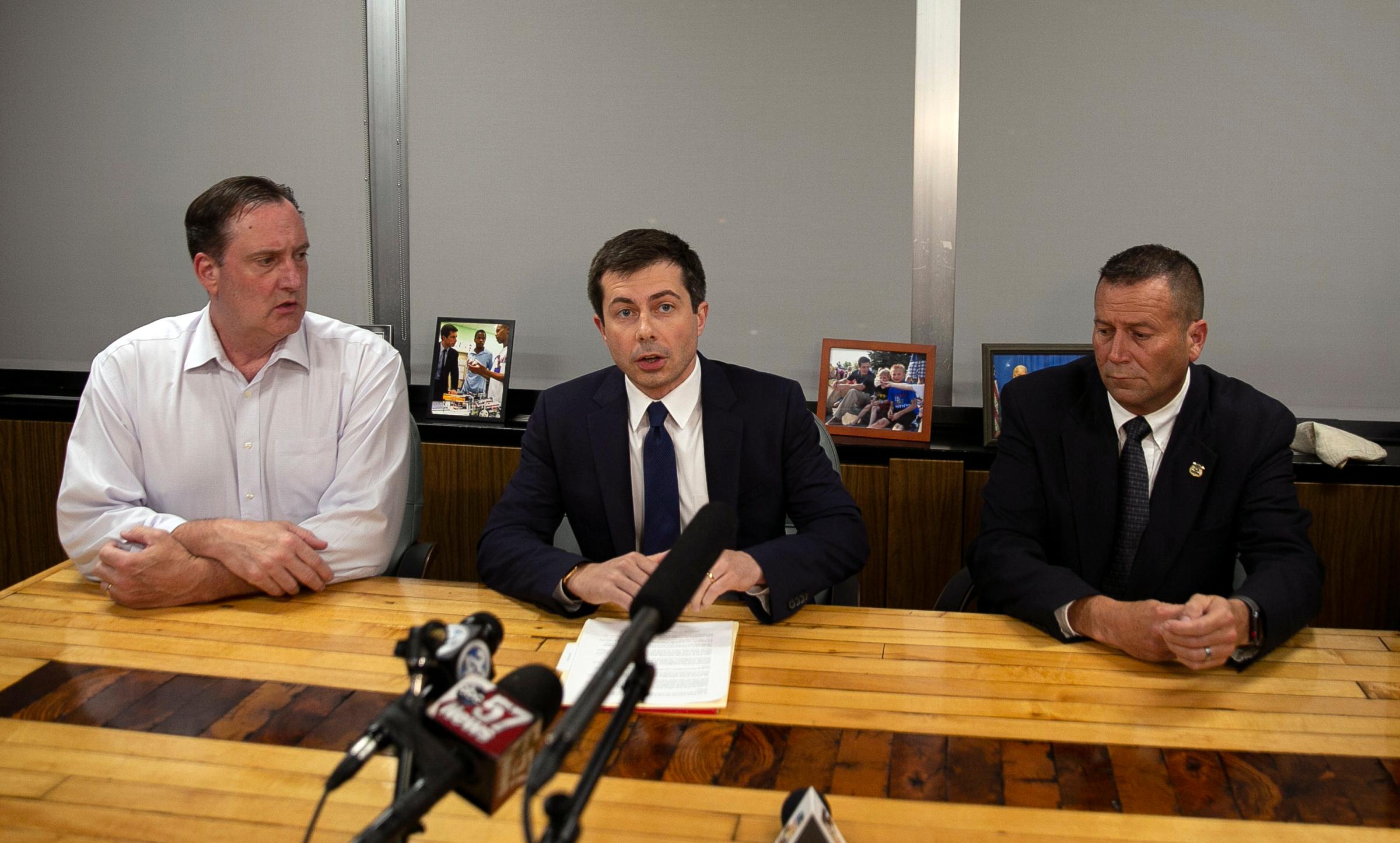
Buttigieg briefly suspended campaigning to return to South Bend after the Eric Logan shooting, where he faced tough questions from residents.
At a June 23 town hall meeting, seven days after the shooting, one resident challenged Buttigieg directly. “Get the people that are racist off the streets. Reorganize your department. You can do that by Friday,” the woman said.
As a mayor, some of his decisions regarding the police department in South Bend have made his relationship with the black community contentious. During his first term, he fired the city’s first black police chief. Chief Darryl Boykins, who was a prominent figure in the community, had allegedly recorded phone conversations between some of the white officers in the department who were using bigoted language.
Buttigieg addressed some of the police controversy in a 2015 address to the city.
“There is no contradiction between respecting the risks that police officers take every day in order to protect this community, and recognizing the need to overcome the biases implicit in a justice system that treats people from different backgrounds differently, even when they are accused of the same offenses. We need to take both those things seriously, for the simple and profound reason that all lives matter,” Buttigieg said in the speech.
As a part of his criminal justice reform plan for his 2020 run, Buttigieg hopes to “prevent discriminatory police practices” and “increase police accountability for misconduct.”
Sen. Amy Klobuchar
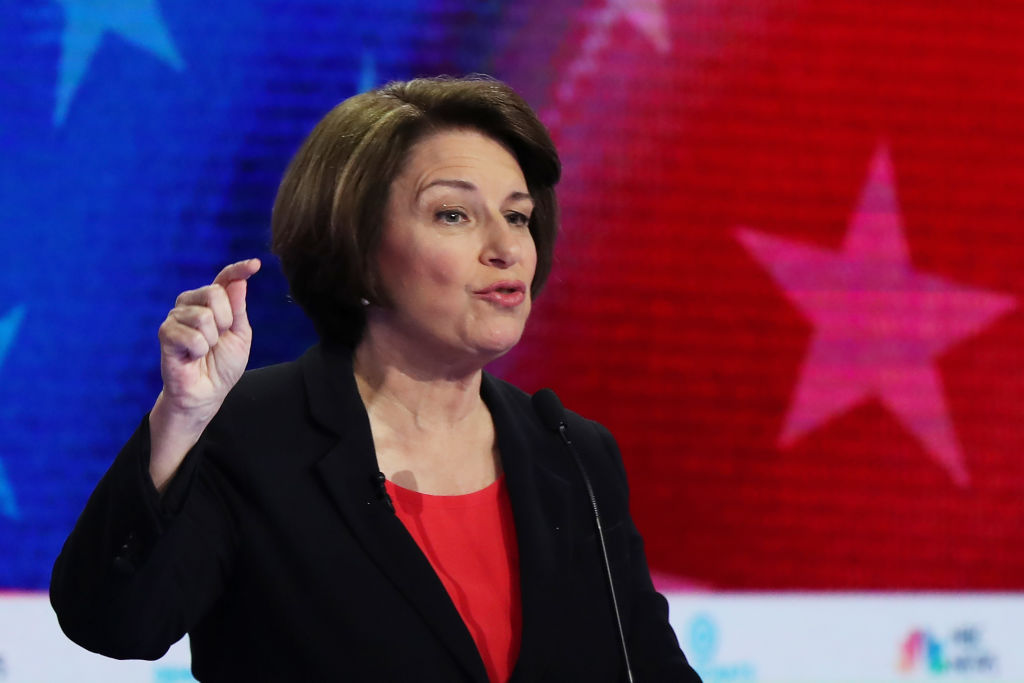
Like Harris, Klobuchar was a prosecutor before she became a senator and presidential candidate. During her eight-year run in Hennepin County, Minnesota, she had a low tolerance for crime and was particularly tough on repeat offenders.
Her office gave out tough penalties to graffiti taggers, drug dealers and those who weren’t paying child support.
Klobuchar does have an innovative criminal justice reform plan for federal prison inmates who are seeking a presidential pardon. Her plan would set up a bipartisan advisory board that would vet requests from inmates, focusing on long sentences stemming from nonviolent drug crimes, particularly those who have rehabilitated themselves while incarcerated. This process wouldn’t require Congressional approval.
More recently, Klobuchar was a co-sponsor on the First Step Act and spoke after the Senate passed the legislation.
“As a former prosecutor, I know firsthand that our criminal justice system must ensure the fair administration of justice while keeping our communities safe,” Klobuchar said in a press release. “This bipartisan legislation makes needed changes to our sentencing laws, while also bringing important reforms to federal prisons.”
During the first debate, Klobuchar addressed the First Step Act, saying: “We will also go to the next step of criminal justice reform. Senator Booker and I worked on that First Step Act, but we should go to the second step act, which is to help all our communities across our country.”
New Jersey Sen. Cory Booker
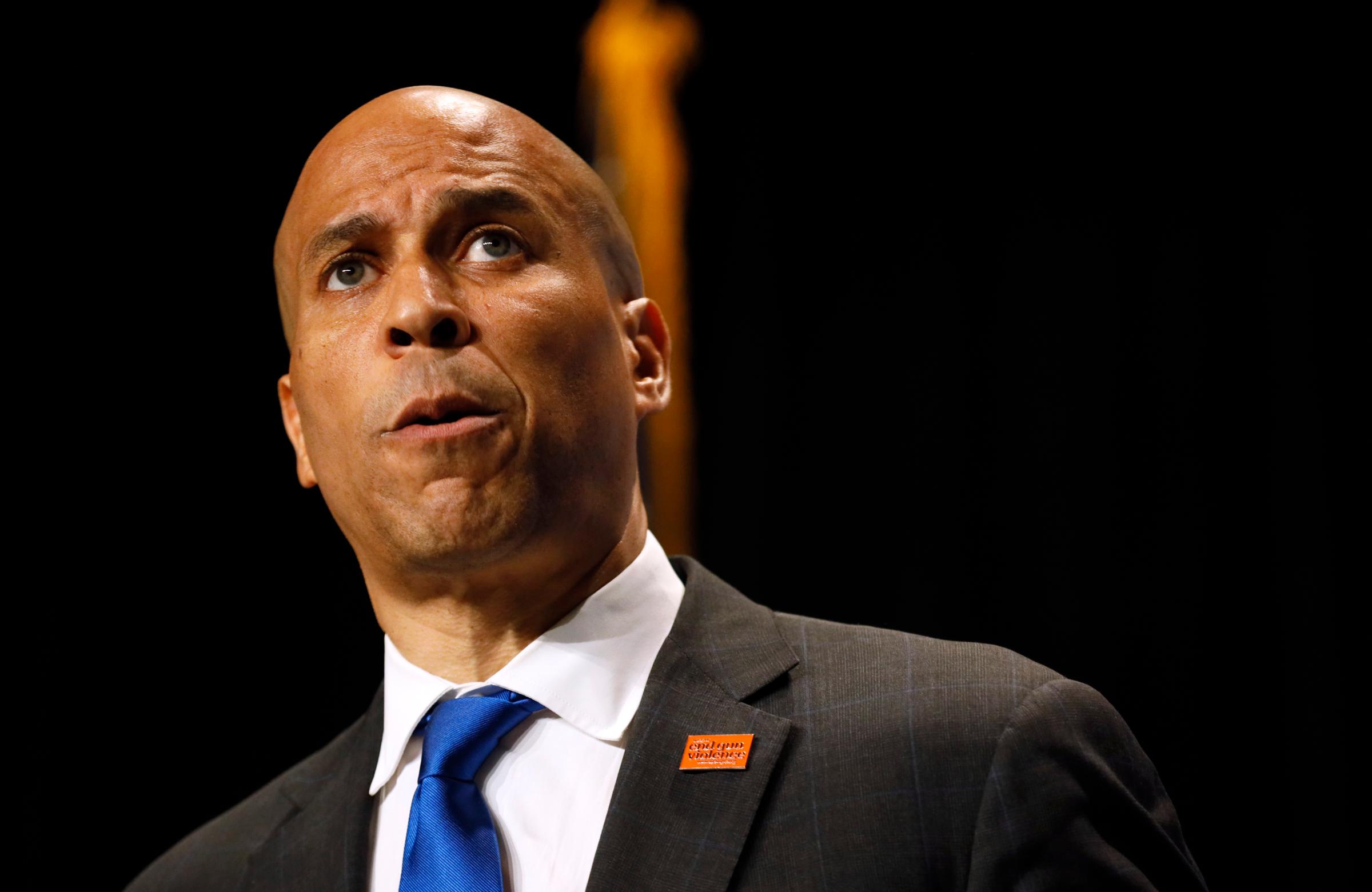
New Jersey Sen. Cory Booker’s campaign is heavily centered on criminal justice reform. He plans to implement significant changes to criminal justice system and has already done so as both a senator representing New Jersey and mayor in Newark.
Booker was a sponsor on the First Step Act, a law that was passed last year, which led to the release of thousands of prisoners who were arrested for drug-related offenses.
Booker has since introduced the Next Step Act with Democratic Rep. Bonnie Watson Coleman of New Jersey. Introduced in March, the bill would reduce the mandatory minimum sentences for nonviolent drug offenders, improve bias training for law enforcement and remove barriers for people with criminal convictions to receive certain job licenses.
“It’s been 75 days since the First Step Act was signed into law, and already, it’s changing lives,” Booker said in a March press statement about the bill. “But the First Step Act is just as its name suggests — it is one step on the long road toward fixing our broken criminal justice system.”
This month, Booker revealed his Restoring Justice Plan with the goal of starting the clemency process for nonviolent offenders who are in prison as a result of the War on Drugs.
During the June 26 debate, Booker spoke about the First Step Act.
“As my colleagues in the Senate know, I fought on that bill from the day I got to the Senate, built coalitions across the aisle and today we passed the First Step Act,” Booker said. “It’s not as far as I want to go, but thousands of people will be liberated.”
Massachusetts Sen. Elizabeth Warren
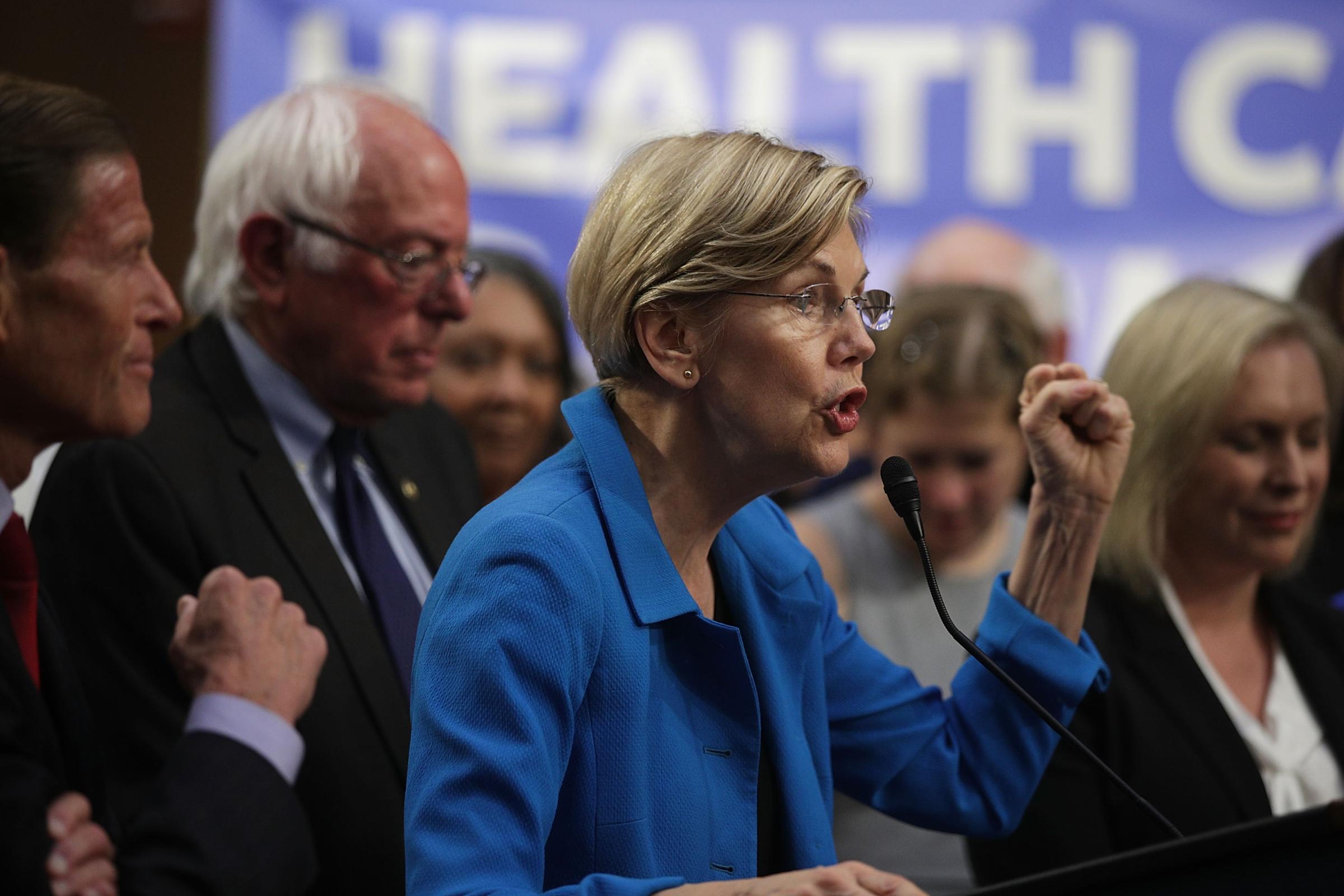
Massachusetts Sen. Elizabeth Warren likes to say on the campaign trail that she has a plan for everything, and that extends to criminal justice and police reform.
While asked at a town hall in April at St. Anselm’s College in Massachusetts what she would do to keep law enforcement safe, Warren the best way to make things safer for the police is to improve the criminal justice system itself.
“Our criminal justice system is broken and right at the heart of that problem is race and we have to address this head on,” Warren said. “Study after study after study shows us that African Americans compared with whites are more likely to be — for exactly the same crimes — they’re more likely to be arrested, they’re more likely to be arraigned, they are more likely to be taken on trial.”
In August 2018, during a Q&A at Dillard University, a historically black college in New Orleans, Warren called the criminal justice system “racist … from front to back.” Warren’s comment sparked backlash from local police in her hometown, who were mourning the death of a police sergeant who was killed in the line of duty.
Like the other Democratic candidates, Warren addresses the need for criminal justice reform in the list of issues she’s focused on. Her latest criminal justice announcement is a plan to ban private prisons.
Julián Castro
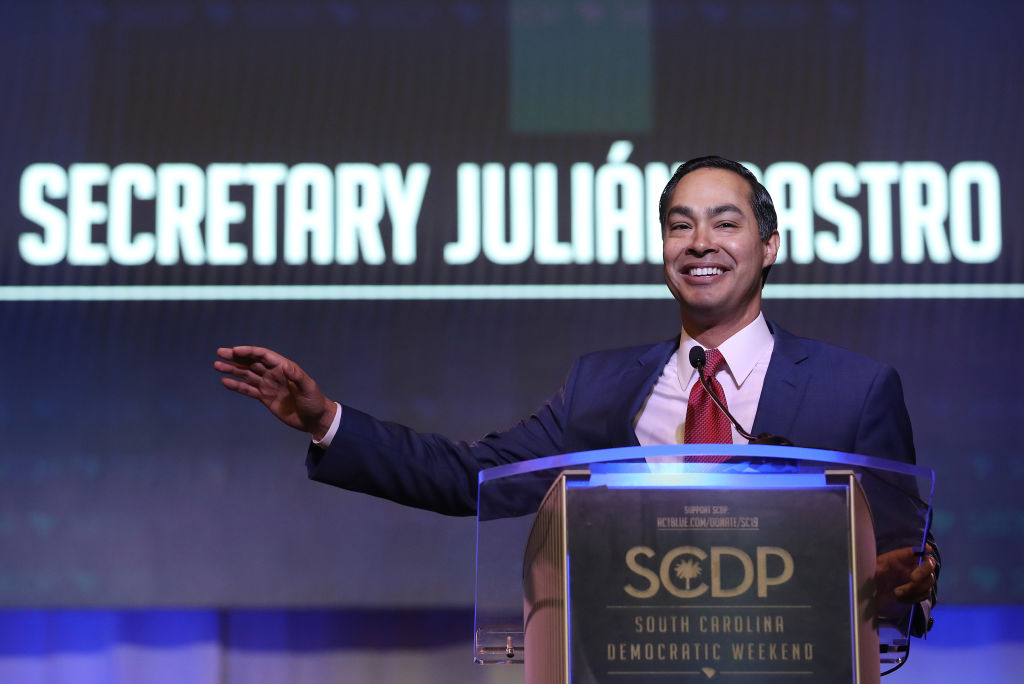
Julián Castro, former HUD Secretary under President Barack Obama, has what can be viewed as the most detailed and expansive police reform plan.
The goals of the plan would be to end the aggressive policing, fight racial discrimination policing, increase accountability and improve the relationship between community members and law enforcement.
“If police in Charleston, South Carolina can arrest Dylann Roof after he murdered nine people worshipping at Bible study, without hurting him then don’t tell me that Michael Brown, and Tamir Rice, and Aiyana Jones, and Eric Garner, and Jason Pero, and Stephon Clark, and Sandra Bland shouldn’t still be alive today, too,” Castro said in January.
While other candidates appear to focus on criminal justice as a whole, Castro has zeroed in on the police
“I’m proud that I’m the only candidate so far that has put forward legislation that would reform our policing system in America and make sure that no matter what the color of your skin is, that you’re treated the same, including Latinos who are mistreated too oftentimes by police,” Castro said during the June 26 debate.
New York City Mayor Bill De Blasio
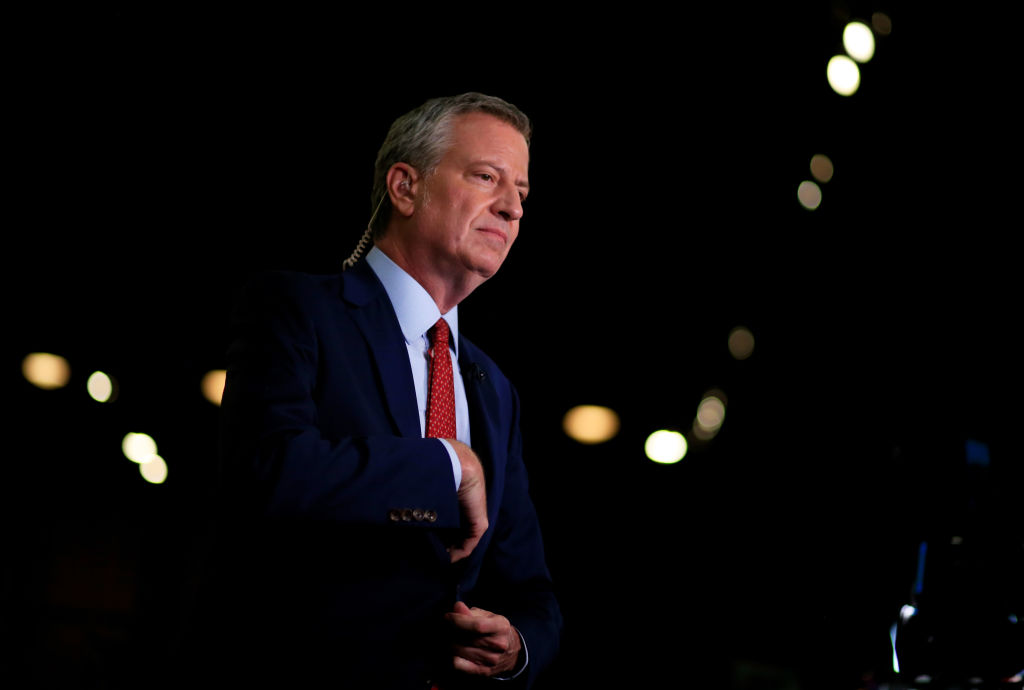
As mayor of New York City, de Blasio runs the largest police force in America, which has been the focal point of the policy debate over reform as well as the flashpoint for several controversial incidents.
Under former Mayor Rudy Giuliani, New York City pioneered policing based on the “broken windows” theory, in which even minor crimes like turnstile jumping on the subway were targeted in the belief that they encourage more serious criminals.
Reformers blame that theory for controversial policies like “stop and frisk,” which they blame for poisoning the relationship between police and the community and leading to more aggressive confrontations such as the death of Eric Garner in 2015.
De Blasio came to office pledging to improve the relationship with police, starting the Neighborhood Coordinating Officers Program, where designated officers in each of the city’s precincts walk around their neighborhood and build relationships with residents.
He has also bragged about the record lows in New York crime over the past few years..
However, De Blasio has faced some criticism. On June 26, the day of the first debate, New York City’s Department of Investigations released a report that the NYPD had not looked into any of the complaints about biased policing since 2014.
“Biased policing, actual or perceived, undermines the core value of equal treatment under the law and also poses a threat to public safety because racial profiling and other types of biased policing undermine the public’s confidence and trust in law enforcement.” Inspector General Philip K. Eure said in the report.
The NYPD put out a statement in response and said that complaints of biased policing were down from 329 at this time last year to 220 complaints this year.
During the first Democratic debate, De Blasio addressed community tensions with police, leaning on his personal experience raising a son who is black.
“I have had to have very, very serious talks with my son, Dante, about how to protect himself on the streets of our city and all over this country, including how to deal with the fact that he has to take special caution because there have been too many tragedies between our young men and our police, too, as we saw recently in Indiana,” De Blasio said.
Former Texas Rep. Beto O’Rourke
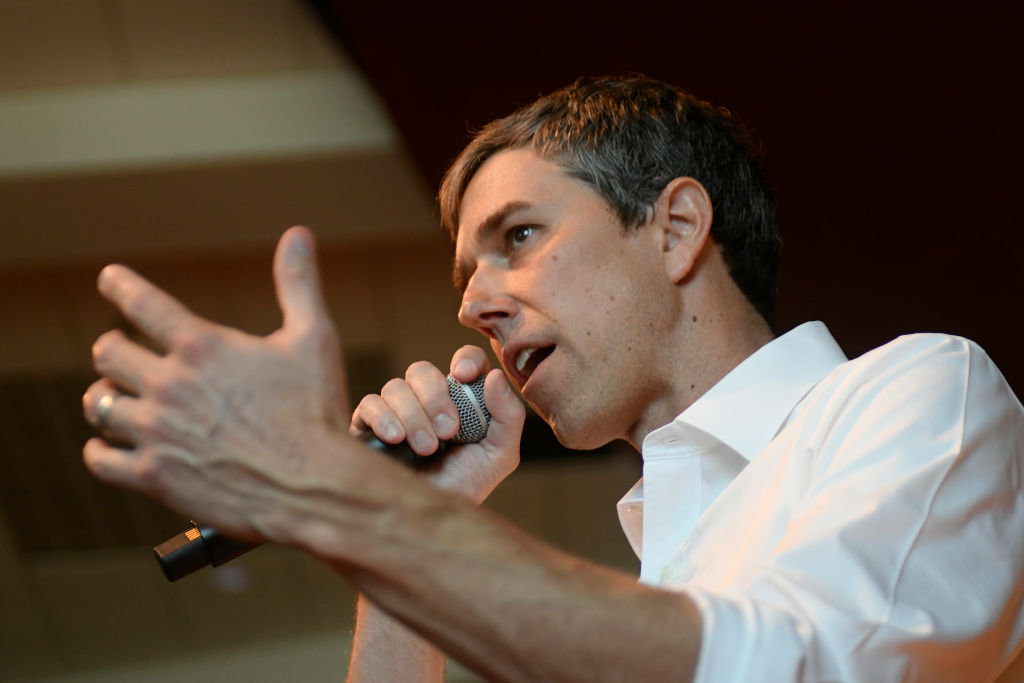
When former Texas Rep. Beto O’Rourke campaigned for the Senate in the 2018 midterm elections, Ted Cruz accused O’Rourke of making disparaging comments about police officers during their first debate, the AP reported. Cruz alleged that O’Rourke referred to police as “modern-day Jim Crow.” O’Rourke denied making those comments.
Cruz was believed to be referring to something O’Rourke said while speaking at Prairie View A&M University in September 2018, when O’Rourke used the phrase “New Jim Crow” when discussing criminal justice reform.
“That system of suspecting somebody, solely based on the color of their skin. Searching that person solely based on the color of their skin. Stopping that person, solely based on the color of their skin. Shooting that person, solely based on the color of their skin. Throwing the book at that person, letting them rot behind bars, solely based on the color of their skin,” O’Rourke said while speaking at the college. “It is why, some have called this, and I think it is an apt description, the new Jim Crow.”
New York Sen. Kirsten Gillibrand
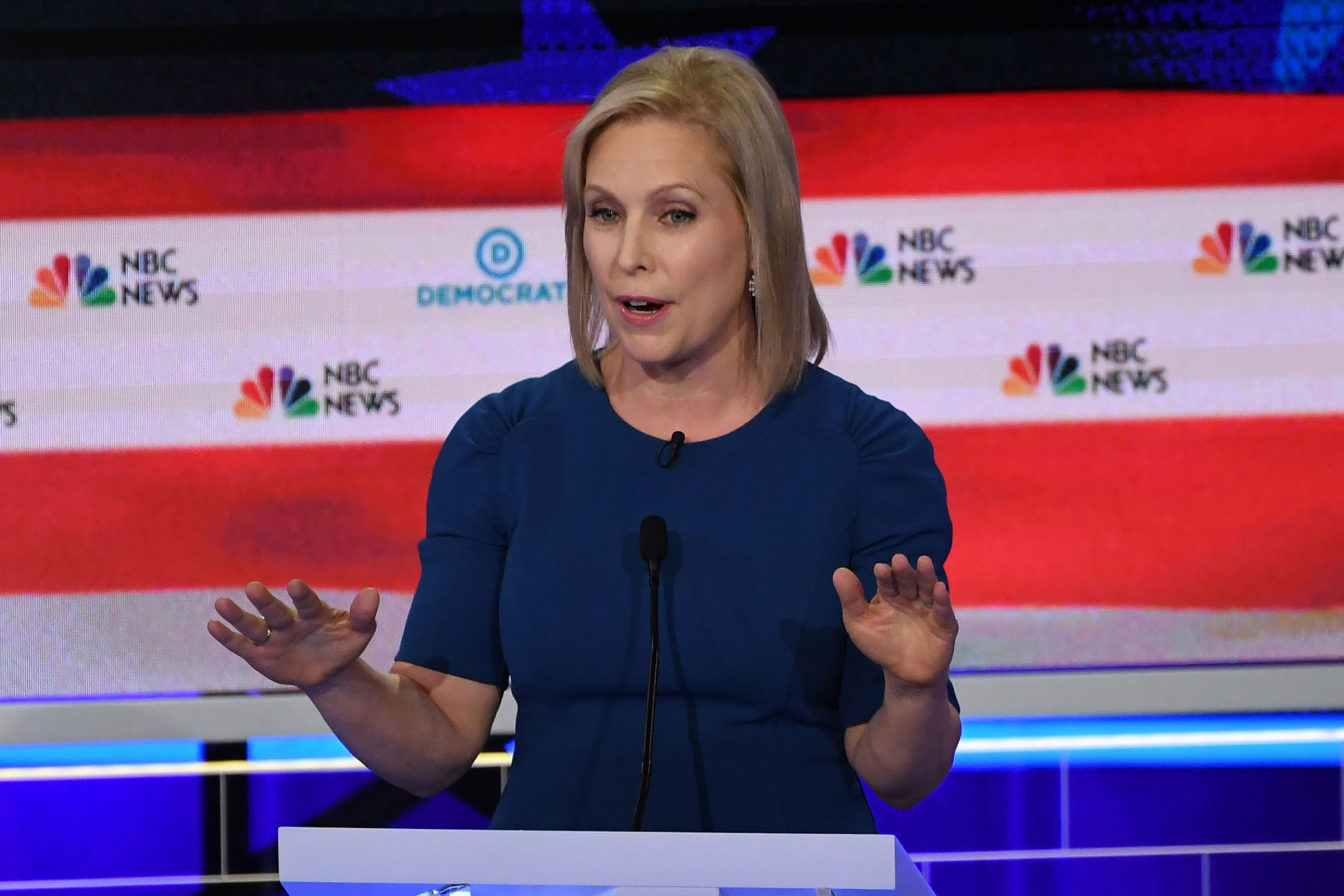
Before announcing that she was running for President, New York Sen. Kirsten Gillibrand took a hard stance against the cash bail system.
In December, along with Rev. Al Sharpton and other community activists, she called on Congress to pass legislation that would end the federal bail system that she says disproportionately results in low-income minorities being locked up even though they haven’t been convicted of a crime.
“If you’ve been accused of a crime – just accused – you might have to wait in jail for months, or even longer, before you get to have your trial and tell your side of the story,” Gillibrand said in the press release. “There are thousands of New Yorkers sitting in jail right now simply because they cannot pay their bail. We should not be locking people up just because they don’t have the financial means to afford their bail.”
More Must-Reads from TIME
- Cybersecurity Experts Are Sounding the Alarm on DOGE
- Meet the 2025 Women of the Year
- The Harsh Truth About Disability Inclusion
- Why Do More Young Adults Have Cancer?
- Colman Domingo Leads With Radical Love
- How to Get Better at Doing Things Alone
- Michelle Zauner Stares Down the Darkness
Write to Josiah Bates at josiah.bates@time.com
